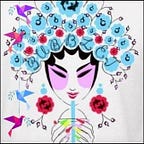A Journey to the Holocaust
To cheer myself up in the gray days before Hurricane Ida, I binged on films about the Holocaust. Nazi propaganda staged scenes of gaiety and luxury in the Warsaw ghetto in Poland even as they systematically starved and shrank the population. Naked bodies strewn on the sidewalks were literally skin and bones, so skeletal they defied imagination. Allied troops who entered the concentration camps gaped in silence, alternately vomited, at the horror and emaciated bodies.
In A Journey to the Holocaust, filmmaker Paul Bachow traveled to Germany and Poland to better understand the stories his grandmother, Ida Haiken, told him about pogroms in Russia. How could people turn on their neighbors and strangers with such brutality? What made holocausts and genocides possible? In short, Bachow found three elements: One, beliefs. Two, political will. Three, a defenseless, targeted group.
Germans were taught that Jews were subhuman — dishonest, lazy, parasitic, dangerous, and filthy demons. It was righteous to isolate and destroy this alien form.
In March 2021, AAPI Data estimated that up to two million hate incidents occurred since the pandemic. I had not dared to imagine a number into the millions, but gingerly projected 200,000, a figure I shared on social media. I taught myself Asian American history, and recall the mass violence Chinese immigrants faced on the West coast (300 towns) that led to the 1882 Chinese Exclusion Act (renewed and extended for over six decades).
What are the beliefs about Asians? There are similarities with how the Jews were viewed. In 1993, UCLA law professor Jerry Kang explored the stereotypes that are catalysts to violence against Asians: One, perpetual foreigner. Two, model minority. Three, unfair competitor. Four, submissive. Five, fungible.
In 2020, China Flu, and its tongue-in-cheek cousin Kung Flu were relentlessly cycled in the news, as Russiagate amp up the threat of communism. The city of New York and San Francisco withheld small business loans from their historic Chinatowns, even as Asian enclaves suffered from attacks, premature closures months ahead of official announcements, and the legacy of the 1882 Chinese Exclusion Act.
By June 2021, over 9,000 attacks were reported to Stop AAPI Hate, a group co-founded by Asian American studies professor Russell Jeung at San Francisco State University. Women comprise 64 percent of that figure.
Last week, the Committee of 100 released a white paper on the significant racial disparities in the implementation of the Economic Espionage Act (EEA) of 1996 and the China Initiative. This comes on the heels of a mistrial and six dismissed cases in recent weeks. Research data is drawn from nearly 300 defendants across nearly 200 separate cases. The trend is unmistakable:
Since the holocaust ended in 1945, over 55 million people have been killed in genocides. These atrocities may always be with us. I highly recommend Bachow’s documentary. Our past is our guide.
